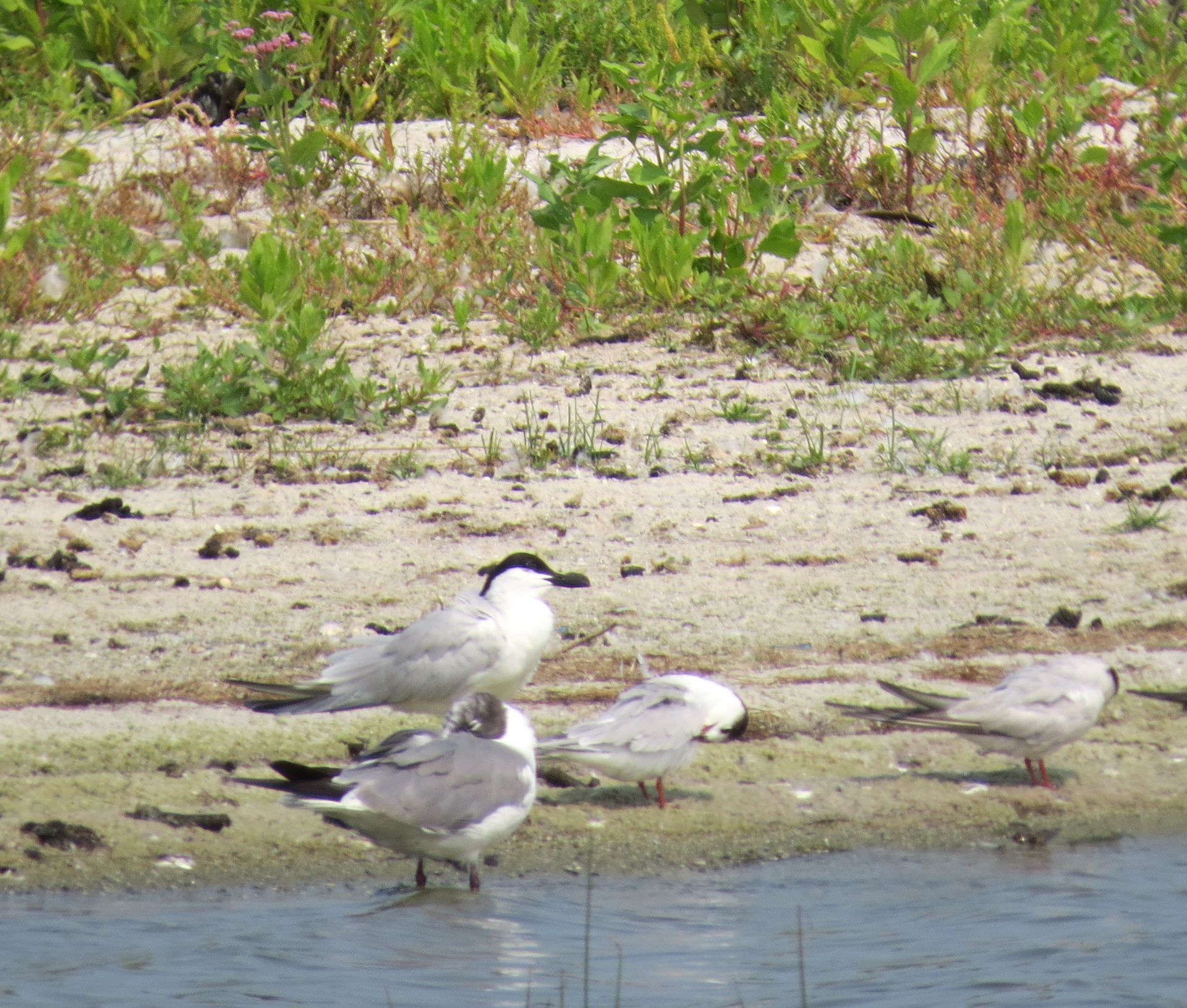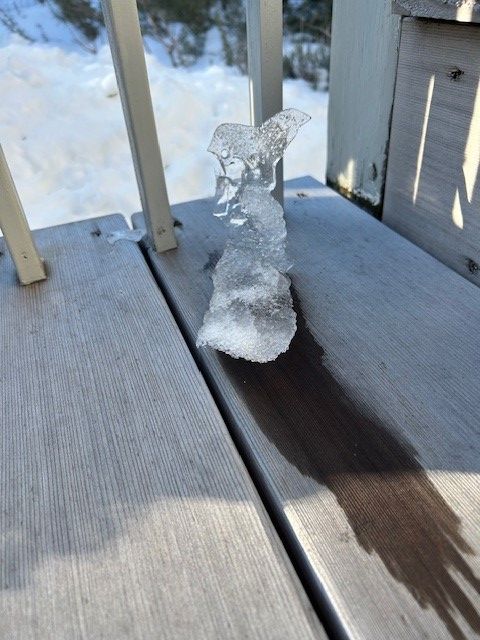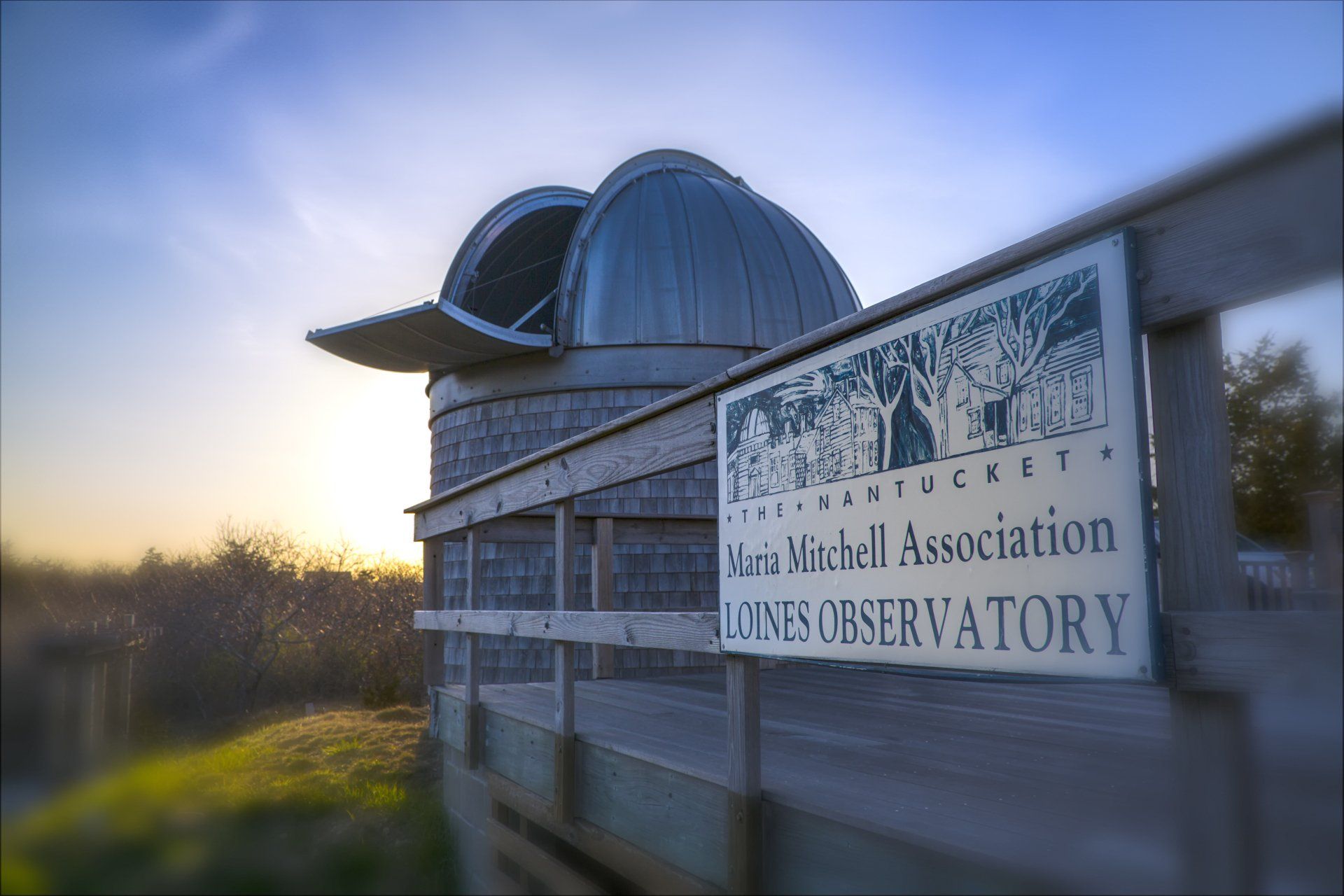Keep Calm and Bird On: September 2024
“If you don’t look, you don’t see. You have to go and look.”
-Edith Andrews

What makes a bird rare? There is more than one kind of rarity.
A species can show up in an unexpected, record-making location, never or seldom seen there before.
The Gull-billed Tern, found at Sachacha Pond in late August and still around at last report, has only been seen on Nantucket four times, ever. It had a close call, a brush with possible extinction, in the days of the plume trade. The late19th century fashion craze that made stuffed birds a global must-have hat decoration caused hunters to slaughter them wholesale, along with every other kind of tern, as well as Egrets and numerous others. But long-ago, regulations saved them in time, and fashion, ever fickle, made such accessories as out of date as the wind-up gramophone.
So the finders of the Gull-billed Tern drew kudos from ornithologists, a footnote in record books yet to be written, and the pleasure of discovery. But from a wider perspective, it has a robust global presence, and breeds perhaps as close to us as Long Island N.Y. So its rarity is really only a local phenomenon.
But there is another type of rarity: there may be so few that its very existence on the planet is threatened. Such is the Piping Plover, a North American endemic, with a population somewhere around 6,000 birds. For comparison, that is about a third of the winter population of Nantucket, distributed across the continental U.S. It has received a lot of concern from scientists and researchers, along with press coverage, regulatory protection, monitoring, and, inevitably, pushback from the bird-hating, beach-driving public.
Piping Plover are not easy to see, being the color of dry sand. Also, they are shorter than the average soda can and much more svelte. But with good equipment and a guide to the right location, one or more can be seen on Nantucket any day from April to October. This makes it hard for some people to accept as worthy of sacred status. But in many ways it deserves more respect than the local rarity-du-jour. Both definitions of rarity say more about us, perhaps, and our fashions of thought, than they do about birds; and this is also something to think about.
Recent Posts




